![]()
Wed, February 13, 2013 | By Gareth H. Jenkins
This article was first published in the Turkey Analyst, vol. 6 no. 3 (www.turkeyanalyst.org), a biweekly publication of the Central Asia-Caucasus Institute & Silk Road Studies Program Joint Center. © Central Asia-Caucasus Institute & Silk Road Studies Program Joint Center, 2013.
In recent weeks, Turkish Prime Minister Recep Tayyip Erdoğan has become increasingly outspoken in his criticism of the highly politicized court cases, such as Ergenekon and Sledgehammer, that have resulted in hundreds of suspects being imprisoned on charges of belonging to terrorist organizations and plotting to stage coups. The result has been a flurry of speculation about possible legislative amendments that would enable the suspects to be released from jail and punitive measures against the followers of the exiled Islamic preacher Fethullah Gülen, who are widely regarded as being behind the court cases. But the situation has also highlighted the parlous prospects for democracy in Turkey and the power struggle between two essentially authoritarian and intolerant forces.
Background
In recent years it has become commonplace to describe the political system in Turkey before the Justice and Development Party (AKK) first came to power in November 2002 as one of “military tutelage”. This is an oversimplification. The Turkish military undoubtedly cast its shadow over the political arena, setting parameters for civilian governments, dictating policy on what it regarded as key issues and suppressing opposition to its main ideological tenets of secularism and Turkish nationalism. But, with the exception of periods such as the three years of direct military rule from 1980 to 1983, its control of politics was less than total. Although the degree varied over time and between policy areas, civilian governments often enjoyed considerable autonomy provided that they remained within certain limits. Nor was the military alone. Like-minded secular Turkish nationalists in the judiciary, bureaucracy and media enthusiastically imposed a similar ideological agenda without any prompting from the military itself.
By the late 1990s, particularly after Turkey became a candidate for EU membership in December 1999, the ability of the military to regulate the political arena had waned. The generals knew that, even if they had wanted to, overthrowing the civilian government and running the country was no longer a viable option — not least because they were convinced that the resultant international opprobrium and isolation would make the country ungovernable. However, this awareness was not shared by the Turkish Islamist movement, many of whose members sincerely believed that the military could stage a coup. It was only in 2007, when the AKP successfully defied a clumsy attempt by the then Chief of Staff General Yaşar Büyükanıt to prevent Abdullah Gül from becoming president, that Turkey’s Islamists finally realized that they no longer had any reason to fear the military. The result was a series of highly controversial judicial cases targeting opponents of the Islamic conservative movement, which have been found to suffer from deep flaws, inconsistencies, and instances of outright fabrication of evidence. In recent years, it has become common for proponents of these cases to try to justify their manifest flaws by arguing that the cases are necessary in order to remove the military from politics. Yet this is misleading: the cases are the consequences, not the cause, of the military’s political impotence. Put simply, if the military had still enjoyed even a fraction of the power it once wielded, the cases would never have come to court.
Nor has there been any genuine attempt to investigate real abuses by the Turkish military. In September 2012, a total of 331 serving and retired military personnel were convicted of plotting a coup — allegedly codenamed Sledgehammer — in 2003. The indictment ran to nearly 1,000 pages and was based on manifestly fabricated evidence. Thus, the “coup plot” dating to 2003 was itself was clearly written using Microsoft Office 2007, a software that had not yet been created at the time. In the Ergenekon case, 275 suspects are charged with membership of a highly-centralized clandestine organization which is alleged to have controlled every terrorist group and been responsible for every act of political violence in Turkey in the last 25 years. As many including this author have demonstrated, the allegation is a patent fiction.(See Silk Road Paper, September 2009, Turkey Analyst, 28 September 2009, 5 July 2010; 4 April 2011 issues) But the various Ergenekon indictments run to nearly 7,000 pages. In contrast, the indictment in the judicial investigation into the 1980 coup and the three years of oppressive military rule that followed — in which hundreds of thousands of people were imprisoned and dozens died under torture — names just two suspects and consists of 82 pages.
Over the years, the evidence that the cases are being driven by elements in the Gülen Movement has grown to the point where it is now overwhelming. In what has now become their hallmark, each case has begun with an anonymous tipoff, usually a letter or email, followed by the “discovery” of allegedly incriminating digital documents, prodigiously long indictments and febrile campaigns of distortion and disinformation in media organs controlled by or affiliated with the Gülen movement. The military has been the main target. Over 400 serving and retired military personnel are currently in prison. The only characteristic that the other targets of the cases share is that they are all perceived opponents or rivals of Islamic conservatism in general or the Gülen Movement in particular — such as leftist journalists critical of the movement, (See Turkey Analyst, 4 April 2011) a rightist police chief who detailed the Gülenists’ penetration of the security forces (See Turkey Analyst, 15 September 2010 issue) and charities which provide scholarships for students, and are thus rivals for Gülenist NGOs whose own provision of scholarships is one of the main instruments by which new members are recruited.(See Turkey Analyst, 24 April 2009) In addition to forgery and fabrication, there is also evidence of Gülen sympathizers planting “incriminating” material on suspects, including sometimes in the wrong premises after mixing up addresses. There has even been a confession by a young NCO who detailed how he had been recruited by the Gülen Movement, told to infiltrate the military and then been given fabricated material to plant on a military computer at an airbase in Kayseri in 2009. After a concerted campaign by the Gülenist media, (eg. Today’s Zaman, Zaman 1, Zaman 2, Zaman 3) the culprit is now free and the prosecutor to whom he confessed — Zeki Üçok — is serving seven years in prison, on the basis of a forensic report stating there is no evidence that the culprit had not been hypnotized. (Click here for Turkish language forensic report).
Implications
Relations between Erdoğan and the Gülen Movement have always been strained. However, particularly during the AKP’s early years in power, they were allies of convenience — not least because they shared many perceived opponents and rivals. As a result, Erdoğan made no attempt to interfere when the Gülenist-driven judicial cases resulted in the imprisonment of hundreds of supporters of the previous secular regime and the intimidation into silence of many thousands more. Although he was sometimes uneasy about the influence of a force he did not control, Erdoğan saw no reason to intervene as long as the cases targeted those who he believed could threaten his own grip on power.
The turning point was the general election of June 12, 2011. Despite concerns about Erdoğan’s growing authoritarianism and an election campaign marred by abuses of power, the AKP won a third successive term in power with 49.8 percent of the vote. The AKP’s election campaign was based almost entirely on Erdoğan himself. Not surprisingly, Erdoğan regarded the AKP’s landslide victory as an endorsement not only of the party’s policies but of his own increasingly autocratic style of government. He began to push for the replacement of Turkey’s parliamentary system with a presidential one — with himself as president.
During its second term, from 2007 to 2011, the AKP had gradually purged the apparatus of state of virtually all of the remnants of the previous regime. But the result was to remove not only ideologically-driven bureaucrats but also an infrastructure of expertise. More critically, Erdoğan’s autocratic style of government had resulted in the “de-institutionalization” not only of decision-making but also of the formulation of policy. Even relatively minor plans and initiatives became dependent on a direct talimat, “order’, from Erdoğan. As a result, very little information now moves up through the echelons of government unless it is in direct response to a request from Erdoğan himself. The result can be most clearly seen in Turkey’s recent foreign policy, which is being driven by the dreams and ambitions of Erdoğan and his Foreign Minister Ahmet Davutoğlu, with very little input from the seasoned diplomats in the Ministry for Foreign Affairs.
This concentration of power in Erdoğan’s hands has accelerated since June 2011 and can be expected to intensify still further if he succeeds in introducing a presidential system. The prospect galvanized the Gülen Movement. In February 2012, a prosecutor viewed as affiliated with the movement attempted to weaken Erdoğan by issuing a summons to intelligence chief Hakan Fidan, an Erdoğan loyalist who was effectively accused of collaborating with the militant Kurdistan Workers’ Party (PKK). The attempt was rebuffed by Erdoğan, who subsequently instigated a minor purge of suspected Gülen sympathizers from the police and the judiciary. Through late 2012, Erdoğan appeared relatively confident that he had the Gülen Movement under control. However, on January 22, 2013, a court in Izmir accepted an indictment accusing 357 suspects, most of them military personnel, of belonging to a “spying and blackmail ring”. The case has all of the usual Gülenist hallmarks, including an anonymous tipoff, a prodigiously long 1,937 page indictment full of absurdities and contradictions, and little if any solid evidence against any of the accused.
As well as the challenge to his power, Erdoğan has recently become increasingly concerned by the impact of the Gülenist campaign on the Turkish armed forces. The morale of the officer corps has plummeted and so many generals and admirals are in prison that the chain of command has been severely disrupted. Army officers serving in the war against the PKK are often wary of obeying orders for fear that, if anything goes wrong, they will be imprisoned and accused of deliberately helping the PKK as part of Ergenekon’s nefarious aims. In the Turkish navy, the situation has now reached farcical proportions. There is only one full admiral who is still at liberty, and he is due to retire in August. Apart from anything else, the judicial campaign against the military has made a mockery of Erdoğan’s ambitions of establishing Turkey as a regional superpower.
Conclusions
The hope had been that, once it was freed from the restrictions imposed by the military, the Turkish political system would develop into a fully-fledged democracy characterized by the separation of powers and institutionalized checks and balances. In practice, the result has been the exchange of one form or authoritarianism for another and the increasing concentration of power in Erdoğan’s hands.
In the absence of any system of checks and balances or an effective parliamentary opposition, the only remaining restraint on Erdoğan’s monopolization of power currently appears to lie in the Gülen Movement. Given their recent track record, reining in the Gülenists could be seen as a welcome development. But it would also consolidate Erdoğan’s already alarming monopolization of power. Sadly, for the moment at least, the preferred third option — a pluralistic democracy based on the rule of law — appears only a hypothetical possibility.
Gareth H. Jenkins is a Nonresident Senior Fellow with the Central Asia-Caucasus Institute & Silk Road Studies Program Joint Center.



 RSS
RSS

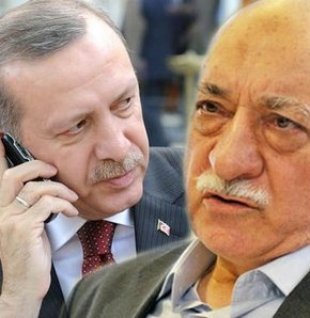

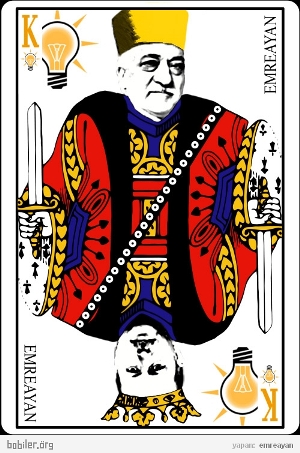


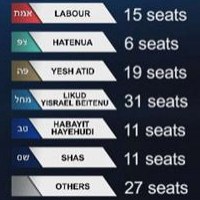
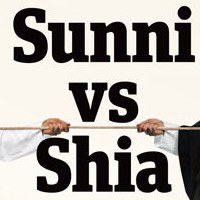
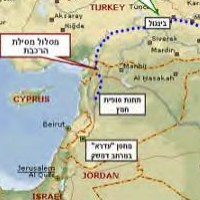




Latest Comments
Hello Mike, Thank you for your positive feedback to the article. I felt there wasn’t too much critical analysis of ...
Thanks for this considered and well constructed article. A follow up article on the manner in which the editorial contro...
THE CLUELESSNESS OF CLAIMING THAT OBAMA'S MIDDLE EAST POLICIES WERE A FAILURE CANNOT BE FURTHER FROM THE TRUTH, WHAT THE...
As long as Obama is the president of the usa do not trust the us government......
Thank you for an good read....